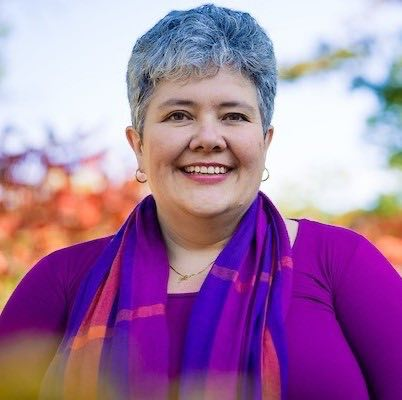Anglicans took part in a week of global climate action that was held Sept. 20-27 to correspond with the UN Climate Action Summit in New York. The actions were taken in solidarity with the youth movement “Fridays for Future,” associated with Swedish teen climate activist Greta Thunberg, who was one of several young people who addressed the UN on Sept. 23 and who joined a march in Montreal on Sept. 27. The aim of the actions was to call attention to the urgency of the climate crisis and demand bold steps from world leaders to address the problem.
On Sept. 22, Anglicans and other people of faith gathered for a vigil starting at Friends House, the home of the Toronto Monthly Meeting of the Religious Society of Friends (Quakers). Archbishop Colin Johnson was one of the Anglicans who participated in the Quaker-led prayer. After an hour, participants processed by candlelight to Holy Trinity, Trinity Square, where they were welcomed with drumming by the Rev. Leigh Kern, the diocese’s Coordinator of Indigenous Ministries and Reconciliation Animator, and Sandra Campbell of the Toronto Urban Native Ministry. Different religious traditions – Christian, Buddhist, Muslim, traditional Indigenous, and more – were invited to offer songs, prayers, readings and reflections. Participants painted a banner reading “Restore and Respect: Climate Justice Now” that hung outside Holy Trinity for the week. Even at midnight, some 30 people remained to walk the labyrinth next to the church in prayer.
“There was a wonderful energy in the room,” said parishioner Jennifer Henry, who is also the Executive Director of KAIROS, the ecumenical social justice agency. “There was a sense of spirit, of grounded hope, of doing what we can with each other’s help and that of the Divine, however understood.”
Scores of Anglican clergy and laypeople, young and old, were among the more than 20,000 people who joined the Global Climate Strike rally and march in Toronto on Sept. 27. Several dozen, including Bishop Andrew Asbil, Bishop Jenny Andison and Bishop Kevin Robertson, gathered at Church of the Redeemer, Bloor Street, before moving to Queen’s Park, where we were joined by still more Anglicans from across the diocese, including some General Synod staff. Still more Anglicans marched with parish groups, with PWRDF, with KAIROS, and with Toronto Urban Native Ministry. The vast number was impressive given that there were no charter busses bringing in participants from outside the city, as often happens with rallies for other causes. Many of those present were schoolchildren, calling attention to the fact that they are the generation which will have to bear the greatest impact of climate change resulting from the actions – and inactions – of their elders. Some marched with their classmates, others with their parents and grandparents.
While the march in Toronto was the largest such action in the diocese, other centres, including Brampton, Orillia, Barrie, Lindsay, Cobourg and Port Hope saw climate strikes as well. In Richmond Hill, some 250 protesters, including youth from Holy Trinity School and Bayview High School, marched from Bayview Avenue and Major Mackenzie Drive to St. Mary’s Anglican Church, where they were welcomed by the Rev. Matthew McMillan and about 50 people from the parish and community. The church provided refreshments and opened facilities for the climate strikers, and rang its bell to call for climate action. Climate scientist Dr. Kaz Higuchi, adjunct professor at York University, and several students addressed the gathering. Monica Woodley of St. Mary’s Green Team described the students as “eloquent and passionate about the need for climate action and concern for their future.” Local organizers appreciated the “special space” and the warm welcome provided by the parish.
Overall, some 800,000 people in Canada, and millions worldwide, participated in the Global Climate Strike. The actions were timely, given new reports showing that average temperatures are rising more quickly than predicted, with sea level increases, devastating coastal floods, disrupted freshwater supplies and increased diseases expected by mid-century unless emissions are immediately and drastically reduced. Our youth know that now is the time for action. Are we ready to commit?



God calls us by name